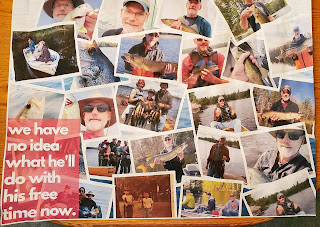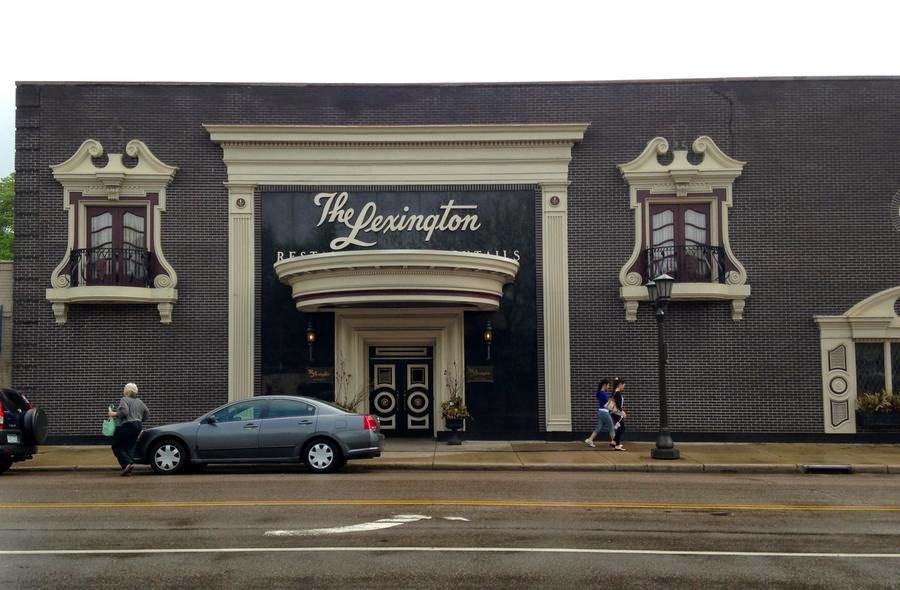A Story Written - A Life Rewritten
In an effort to support other authors from my publishers, eLectio Publishing, I ordered a book written by Phil Hamman, titled Under the Influence. It's my hope that other eLectio authors will support my book when it comes out, so I thought I'd do the same. Phil and I have chatted a few times on Facebook and he's been very helpful with some of the ins and outs of book promotion.
I'm only a little ways into the book, but already some things have jumped out at me. This guy grew up in a really tough neighborhood. His house was among several other small houses that once served as army barracks and were not much bigger than 10' X 25'. It was government housing by any other name, but the neighborhood served to breed crime and violence. He tells stories of unspeakable abuse and alcoholism from his father, schoolyard bullying, and unmentionable tragedies that occurred in the neighborhood around him.
The story resonates with me for a few reasons. While my second book will be about the house I grew up in, it's a little known fact that a couple of our residences before that were government housing projects in St. Paul. No one much talks about it in the family because it wasn't our family's finest hour, obviously. My mom and dad were going through some tough times, and at the time, the projects were the best we could do.
This is why I try not to judge people.
My mom found a way to rise above. She worked her tail off and said that she would not settle for government assistance. She was too proud. She raised 6 of us almost single handedly for most of our young lives. The kicker is that not everybody has parents who care this much. That's the sad part and that's what makes Phil's story (at least up to the point where I'm at now in the story) different.
I never felt unloved or feared a beating or took any kind of verbal abuse from my mom. We were raised in a loving, supportive, albeit justifiably chaotic at times, home. Mom saw to it that we went to the best schools possible and that we respected each other. When we showed disrespect, she let us know about it and reminded us that we were family, and we don't talk like that to each other.
But getting back to Phil's story, another thing that resonated with me is my old mantra that everyone has a story. We are who we are in large part because of how we were raised. In some cases, the scarring from childhood is impossible to shed and people become hardened or dysfunctional adults.
Other times they use the abuses of their youth to strive for better. They refuse to become what they came from, and instead remake their adult life into something different. They don't let their childhood define them. I think that's what Phil has done. I think sometimes those unspeakable abuses make beautiful people. It comes at a cost, but the end product can serve in-part to make up for the sins of the past.
The final thing that resonated with me was the fact that Phil had the courage to write these stories down. His book is narrative in form and stylistically different than my own, but we both have stories to tell. Some of the most important writing I've done in the past couple of years has been stories about my brother Rob, his life, his sickness and his passing. While writing about it is forcing me to relive parts of it, which can be incredibly painful, it's also therapeutic. It helps me make sense of something that makes no sense. It's how I work it out, and, while the events of that year of pain and suffering and all the years since will never go away, writing helps me to release some of it, digest it and sort it out. Phil acknowledged that that was the case for him too. We call it the power of the pen (or keyboard.)
So remember the next time you drive by a "bad neighborhood" or a housing project or even a run down house, that people with problems live there. But before you remember that, remember that PEOPLE live there.
And they have a story, just like you have a story.
Blogging off...
I'm only a little ways into the book, but already some things have jumped out at me. This guy grew up in a really tough neighborhood. His house was among several other small houses that once served as army barracks and were not much bigger than 10' X 25'. It was government housing by any other name, but the neighborhood served to breed crime and violence. He tells stories of unspeakable abuse and alcoholism from his father, schoolyard bullying, and unmentionable tragedies that occurred in the neighborhood around him.
The story resonates with me for a few reasons. While my second book will be about the house I grew up in, it's a little known fact that a couple of our residences before that were government housing projects in St. Paul. No one much talks about it in the family because it wasn't our family's finest hour, obviously. My mom and dad were going through some tough times, and at the time, the projects were the best we could do.
This is why I try not to judge people.
My mom found a way to rise above. She worked her tail off and said that she would not settle for government assistance. She was too proud. She raised 6 of us almost single handedly for most of our young lives. The kicker is that not everybody has parents who care this much. That's the sad part and that's what makes Phil's story (at least up to the point where I'm at now in the story) different.
I never felt unloved or feared a beating or took any kind of verbal abuse from my mom. We were raised in a loving, supportive, albeit justifiably chaotic at times, home. Mom saw to it that we went to the best schools possible and that we respected each other. When we showed disrespect, she let us know about it and reminded us that we were family, and we don't talk like that to each other.
But getting back to Phil's story, another thing that resonated with me is my old mantra that everyone has a story. We are who we are in large part because of how we were raised. In some cases, the scarring from childhood is impossible to shed and people become hardened or dysfunctional adults.
Other times they use the abuses of their youth to strive for better. They refuse to become what they came from, and instead remake their adult life into something different. They don't let their childhood define them. I think that's what Phil has done. I think sometimes those unspeakable abuses make beautiful people. It comes at a cost, but the end product can serve in-part to make up for the sins of the past.
The final thing that resonated with me was the fact that Phil had the courage to write these stories down. His book is narrative in form and stylistically different than my own, but we both have stories to tell. Some of the most important writing I've done in the past couple of years has been stories about my brother Rob, his life, his sickness and his passing. While writing about it is forcing me to relive parts of it, which can be incredibly painful, it's also therapeutic. It helps me make sense of something that makes no sense. It's how I work it out, and, while the events of that year of pain and suffering and all the years since will never go away, writing helps me to release some of it, digest it and sort it out. Phil acknowledged that that was the case for him too. We call it the power of the pen (or keyboard.)
So remember the next time you drive by a "bad neighborhood" or a housing project or even a run down house, that people with problems live there. But before you remember that, remember that PEOPLE live there.
And they have a story, just like you have a story.
Blogging off...


Comments